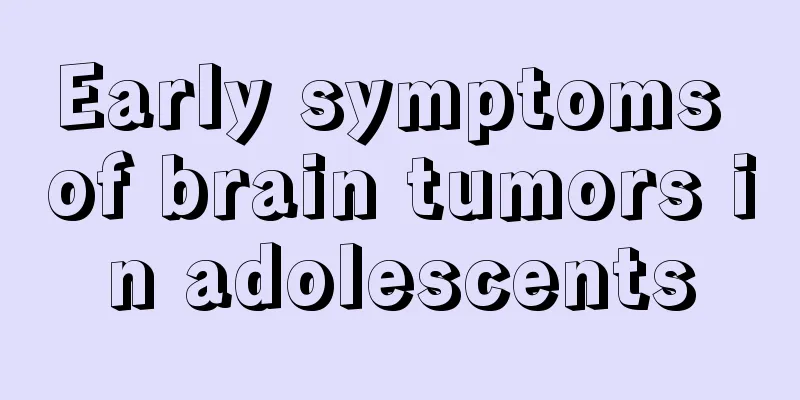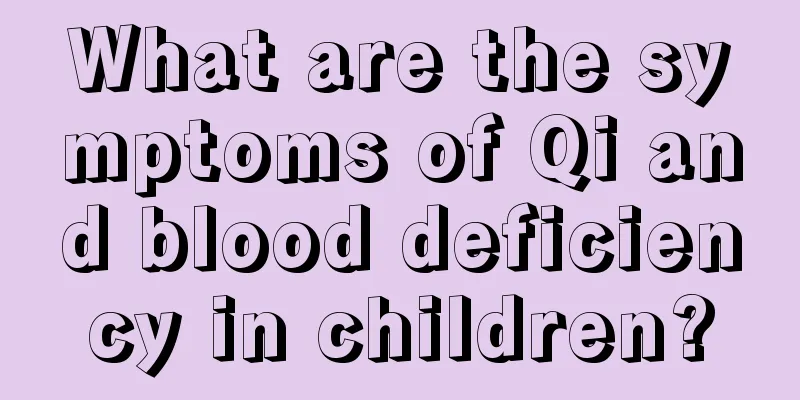Newborn baby convulsions

|
Children's bodies are relatively fragile, so we need to pay special attention to any abnormal phenomena that occur in them. For example, some babies may have convulsions shortly after birth. Parents must pay close attention to this because it may hide a huge crisis and even endanger the baby's life. Therefore, everyone must understand the root cause of this problem as soon as possible.
1. Intracranial diseases Hypoxic-ischemic encephalopathy, convulsions are more common within 24 hours after birth; hypoxic and birth traumatic intracranial hemorrhage, convulsions are more common 2-3 days after birth; cerebral infarction: mostly middle cerebral artery infarction, convulsions are more common 1-4 days after birth. 2. Infection It is common in meningitis, encephalitis, brain abscess, sepsis, tetanus, etc., with purulent meningitis and sepsis being the most common. For babies with intrauterine infection, convulsions occur within 3 days after birth, while for babies with postnatal infection, convulsions are more common after 1 week after birth.
Hypoglycemia, which usually occurs within 3 days after birth; hypocalcemia, including early-onset convulsions occurring 1-3 days after birth and late-onset convulsions occurring 1-2 weeks after birth; hypomagnesemia, which often coexists with late-onset hypocalcemia; hypercalcemia or hyponatremia; vitamin B6 deficiency: convulsions are seen in neonates several hours to 2 weeks after birth. 4. Medication Drug overdose or poisoning: such as stimulants, aminophylline, organophosphates, etc. Withdrawal syndrome: Anesthetics and phenobarbital drugs used by pregnant mothers can pass through the placenta into the fetus. The drug supply is suddenly interrupted after delivery, and convulsions often occur within 6 hours after birth, and return to normal within 24 to 48 hours. 5. Congenital central nervous system malformationsHydrocephalus, cerebral hypoplasia, microcephaly, etc. 6. Familial benign convulsions It is a self-limiting disease. Seizures occur within 3 days after birth and occur frequently. 7 Other reasons: 1. Central nervous system diseases are often seen in intracranial hemorrhage, meningitis, kernicterus and brain malformations; 2. Neonatal tetanus often causes convulsions 4 to 6 days after birth, accompanied by trismus; 3. Children with metabolic disorders, hypocalcemia, hypomagnesemia, and hypoglycemia may experience convulsions |
<<: What to do if your child has internal heat and can't defecate
>>: How to treat perioral dermatitis in children
Recommend
What are the symptoms of high blood pressure in children?
People who are overweight and elderly people are ...
What to do if your child has cervical pain
The popularity of mobile phones in recent years h...
What causes convulsions in children?
The problem of children's convulsions makes m...
How to correct a child's hunchback
When children are in the growth and development p...
Why is my child not growing? Is it because of calcium deficiency?
The phenomenon of children not growing taller is ...
What toothbrush is good for children?
Washing our face and brushing our teeth are thing...
Can children eat figs?
Figs have always been loved by many people. Some ...
How to care for a baby after one month?
When I was pregnant, I always felt that everythin...
What to do if baby suddenly refuses to breastfeed?
Babies have to rely on their mothers from the mom...
Is it good for children to drink lactic acid bacteria drinks?
Children are in the stage of physical development...
The cause of lymph nodes in children's neck
Children's immunity is relatively weak, so th...
Children suffer from leukemia because of it
Paint is the main culprit of childhood tumors Amo...
What is the cause of baby's brain dysplasia?
Here, I would like to give a friendly reminder to...
How to deal with prickly heat in a two-year-old baby?
The sweat glands of infants and young children ar...
What is the reason for the newborn to nod and breathe?
Every newborn is the hope and joy of the family, ...









